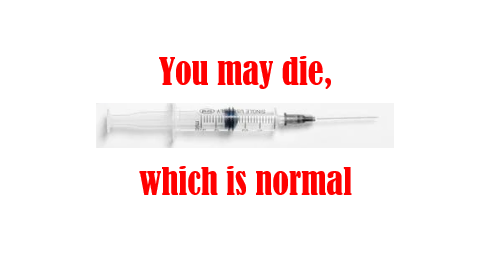Goldman Sachs, 2018: 'Is Curing Patients a Sustainable Business Model?'
This question was asked by Goldman Sachs analysts in April of 2018, according to CNBC: “Is curing patients a sustainable business model?”
“Goldman Sachs analysts attempted to address a touchy subject for biotech companies, especially those involved in the pioneering ‘gene therapy’ treatment: cures could be bad for business in the long run.
‘Is curing patients a sustainable business model?’ analysts ask in an April 10 report entitled ‘The Genome Revolution.’
‘The potential to deliver ‘one shot cures’ is one of the most attractive aspects of gene therapy, genetically-engineered cell therapy and gene editing. However, such treatments offer a very different outlook with regard to recurring revenue versus chronic therapies,’ analyst Salveen Richter wrote in the note to clients Tuesday. ‘While this proposition carries tremendous value for patients and society, it could represent a challenge for genome medicine developers looking for sustained cash flow.’”
This query of Goldman Sachs is a truly interesting question not simply as symptomatic of Goldman Sachs and their biotech plans for the future, but also as emblematic of a wider attitude. That was 2018, but is that sort of attitude still around today? Are we starting to see the fruits of that attitude? Why do the Moderna and Pfizer CEOs keep coming out and saying that we need yet another booster shot, perhaps for years to come? Well, perhaps because their companies are making billions. After all, the shots clearly don’t work—deaths have actually increased since we got the Covid vaccines (by the way, note that the 2018 article mentions gene therapy—which is what the mRNA Covid vaccines are).
The scientists and politicians and government officials know the Covid vaccines don’t work, and that many of their Covid-19 narratives have been flat out lies. That’s why over a hundred Congressmen took Ivermectin for Covid at a time when lawmakers and media alike were aggressively slamming Ivermectin as a Covid treatment and trying to prevent its widespread use. That’s why the FDA authorized a new and updated formula for the approved (and unavailable) Comirnaty and emergency use authorized Pfizer vaccines—and insisted Pfizer start tracking myocarditis, deaths, and other side effects caused by the vaccines. That’s why attorney Thomas Renz discovered through whistleblowers that there was data the government had on vaccine-related deaths and therapeutic effectiveness that had not been disseminated to the public. The vaccine can be used to control people’s lives by the government, and the vaccine can be used by Big Pharma and medical professionals to make money forever.
The Covid vaccines don’t stop Covid—but they sure cause other problems, many of them incurable (over 60% of people with myocarditis will die within 5 years, for instance, and there are other incurable side effects, such as permanent allergic reactions). Bill Gates said he wants to use vaccines to reduce the world’s population. But is it not possible that companies invested in the medical field actually want to make people permanently ill, so that they can make money? Are Pfizer and Moderna and the rest asking the same question Goldman Sachs asked, and creating their own expanding customer base?
Covid-19 isn’t the only disease that the medical/pharmaceutical industry can make money off, however. There are people I know who spent years trying to get an accurate diagnosis, because specialists refused to admit they didn’t know exactly what was wrong and just kept offering treatments that didn’t work—oftentimes, medication. I don’t think all those doctors had malign intentions, but let’s face it, many medical workers now don’t really “care” for people. They know how to push buttons on machines and dispense pills. That’s how they were trained and that’s how they make money. Why would they want to change their business model and really cure people, when their current method is so lucrative?
Goldman Sachs certainly seemed to be considering the potential of never making people better. If that was 2018, we may well be experiencing now the decisions such companies made to invest in a future where no one is cured, everyone is increasingly more ill and more terrified, and the medical industry controls people’s lives around the globe.




